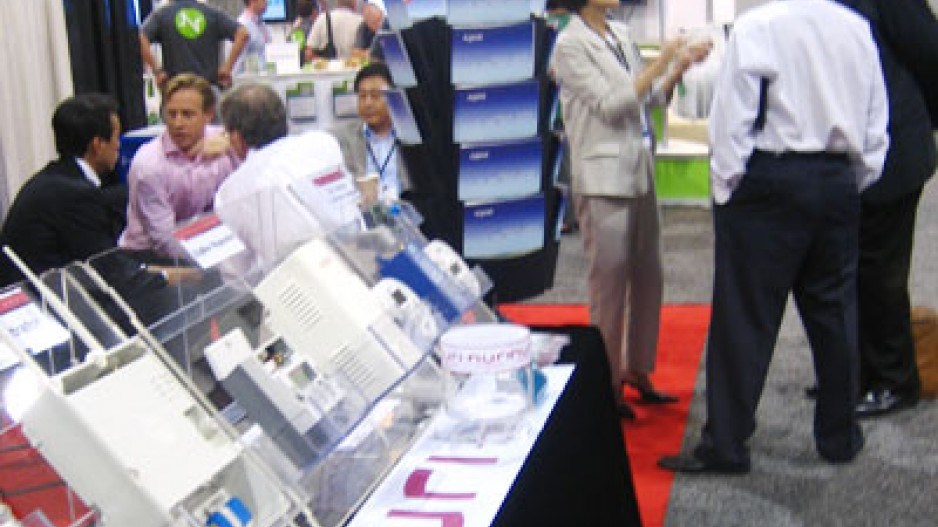The recent acquisition of a Vancouver-area tech company by a South Korean multinational via compulsory means – the first such case in Canada – could signal the start of a bigger spike in cross-investment between B.C. and its fourth-largest trading partner.
That’s the observation of industry officials after Seoul-based Nuri Telecom announced earlier this month that it had acquired more than 90% of the shares in Richmond-based Apivio Systems Inc., a company that designs and produces voice-over-Internet protocol (VoIP) communication technology.
What has caught the eyes of observers is the manner of acquisition, and the source. South Korean companies have not been known to be major merger-acquisition players in the global market, and a Korean company’s decision to take over a Canadian firm might signal Seoul’s increased interest in B.C., especially in sectors other than the usual areas of trade between Canada and South Korea.
“What I think is important is that this is another example of a non-traditional, resource-related type of business deal,” said Sung Van, president of the Canada Korea Business Association in Vancouver. “We are talking about Apivio’s technology and about this telecom company believing in B.C.-based technology, not just to bring it back to Korea, but wanting to establish a business and setting up an office. That means Apivio staff are going to be employed, and more jobs will be created.”
Nuri, which makes smart meters and other energy management technology targeting the utilities sector, has offices in Japan, South Africa and the United States. Its power management systems have been successful in going beyond South Korea. The company recently won a US$79 million bid with Norway’s Soria consortium.
Nuri executive Elizabeth Park – who has been appointed Apivio’s interim president and CEO after the acquisition and the resignation of former lead executive Rob Bakshi – said Nuri first took notice of Apivio’s potential and began the acquisition process a few months ago, through Apivio’s VoIP business in Korea.
“We just thought that acquiring Apivio would build a foundation to bring other products – from Nuri and Apivio – to North America,” said Park, noting Apivio’s global distribution deal signed with IT giant NEC Corp. last December as an example. “If we add our product line to their product line, the end result is a bigger company here. This is an opportunity for Apivio to grow.”
Park added that the company is still in the transition process after announcing the start of exercising its compulsory acquisition rights on May 16. At that time, Nuri had acquired 95.6% of Apivio shares. Apivio, despite its major distribution deal, has struggled with narrow profit margins; revenue in first-quarter 2017 rose slightly year-over-year to $13.27 million from $13.13 million, but net loss widened during that same period to $639,348 from $255,851.
Despite the numbers, however, Van said Korean companies are looking at the products and distribution networks more closely, and the fact Nuri chose Vancouver as one of its first landing spots for North American expansion is encouraging.
“For sure, I think other companies may follow,” he said. “I think that Koreans see the value of B.C. companies’ technology. We do have a very good tech sector, and I think the fact that they recognize that – and the fact that Vancouver is a great place to do business and set up an office – will play a very important role in the future.”
Nuri’s mission, Park said, is to give Apivio the resources, products and capital support to step up beyond its current markets, while helping with expanding Nuri’s footprint into North America. That means hiring more people in Vancouver, although specific numbers have not been determined.
“That market is huge,” Park said. “While many utilities have already upgraded, there are still many, many more opportunities both in the United States and Canada. … We are planning to hire engineers who specialized in our products.
“I have no idea if other Korean companies will follow. I just think that we can bring Korean technology – with the help of Canadians – to North America. We’ve seen a challenge in terms of selling Korean products into the American utilities market, so that’s why we went to Europe first. But we believe a joint Canadian-Korean effort would be able to penetrate that market much more effectively.” •




